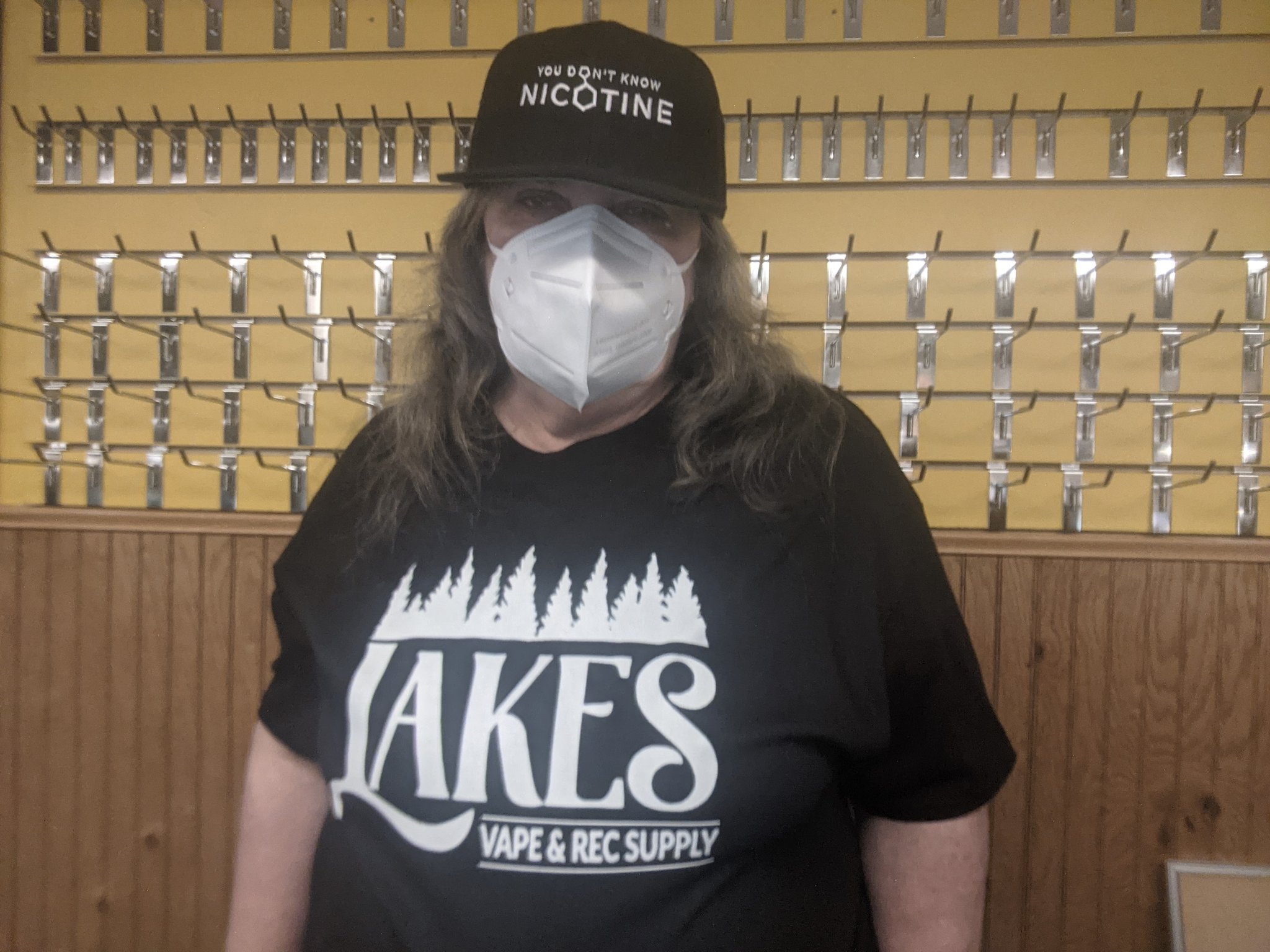For the past couple of years, Skip Murray has updated a Twitter thread every time a vape shop shuts down. On December 31, 2021, she added her own.
Since 2018, Murray had run Lakes Vape and Rec Supply in Brainerd, Minnesota, a small town and tourist destination a few hours north of Minneapolis. A fierce consumer advocate and self-described “optimist,” she knew that she’d one day have to close her store, even if she could never quite admit it to herself.
“Realistically, I knew this was going to happen,” Murray told Filter. “But I kept hoping that something—something—would change. I was holding out hope that the world would come to its senses.”
Sales plummeted when EVALI hit, and she watched as many of her patrons returned to smoking … as misinformation swirled, hardly anyone new came in to quit.
Like so many other smaller players who produce or sell these harm reduction products in the United States, Murray ultimately couldn’t weather the wider storm.
Politicians have continued to laser-focus on youth vaping rates, despite the fact that they have significantly dropped. The media covered, with alarm, a string of vaping-linked illnesses (“EVALI”) in the summer of 2019, which the Centers for Disease Control and Prevention (CDC) belatedly blamed on illicit, tainted THC cartridges. And anti-vaping groups like the Michael Bloomberg–funded Campaign for Tobacco-Free Kids (CTFK) have made it their mission to ban flavored vaping products in as many municipalities as possible. Generally speaking, adult smokers who switch to safer alternatives, like vaping, have been ignored in the public health discussion.
Murray’s sales plummeted when EVALI hit (about a 30 percent drop), and she watched as many of her patrons returned to smoking. Much of her customer base were regulars, and as misinformation swirled, hardly anyone new came into the shop to quit smoking.
Then, when COVID peaked, Minnesota didn’t deem vape shops to be “essential” businesses, so Lakes Vape and Rec Supply remained shuttered for all of the state-imposed lockdown.
On top of that, Murray primarily sold her own e-liquid, and she could not wrap her head around the premarket tobacco product application (PMTA) process—a costly bureaucratic slog that many critics say hands over the market to the largest companies with the finances to do substantial science.
The miracle she was holding out for never happened. Murray let her license expire. “It was really hard to close,” she said.
The journey had been an accidental and fulfilling one. In 2014, her then-29-year-old son had a heart attack after smoking two packs a day for more than 10 years. Eventually, he tried vaping, and within a week, Murray said, he had quit smoking. He sold some of his belongings—his television, his stereo, his guns—and came up with $5,000 to open a vape shop in Brainerd. Its location in a low-income neighborhood meant it could offer harm reduction alternatives to the kind of community that typically has a high rate of smoking.
An e-liquid manufacturer taught him how to make e-liquid, and soon he was mixing his own in the back of the store. Murray, who had been smoking since she was 10, helped him out.
Murray would sneak out of the shop to smoke, but her son hated the smell so much that he told her she couldn’t do it while she was there. She started vaping at the store instead, and gradually, she vaped more and more. Nicotine, she explained, quells her depression and helps her focus, even with attention-deficit/hyperactivity disorder (ADHD).
“I had failed to quit smoking so many times that I quit trying to quit,” Murray said. “I just firmly believed it would never happen.” About four months later, she said, she couldn’t remember the last time she had smoked a cigarette. “It was a happy accident.”
By October 2018, she had taken over the shop and worked there nearly every day, in addition to a full-time, overnight job at a group home. Around then, Murray relocated to the downtown that the local government had been attempting to revitalize and dove headfirst into consumer advocacy. Now, she assists with the Safer Nicotine Wiki, an information hub about vaping and tobacco harm reduction.
“I’ve had other family members and many friends with the same story,” Murray said. “It’s never been about an income. It’s always been about helping people. I just wanted to make sure another mom didn’t have an hour drive to a hospital, wondering if her son was dead or alive. It was a horrible experience.”
“We always catered to the low-income, the disabled and the elderly.”
In retrospect, Murray thought that moving her brick-and-mortar location may have been a mistake. Still, she always maintained the ethos of her small business; her model was to help people give up smoking and then, by lowering the nicotine content over time, quit vaping too. But she was hesitant to change, she admitted; she delayed introducing pod-based vaping products and never sold any disposables.
“We always catered to the low-income, the disabled and the elderly,” she said. “We were always the working man’s, dive bar-type vape shop.”
Her dream, though, was short-lived.
“The vape community is what helped me get through this,” said Murray, whose tobacco harm reduction advocacy will continue. “The amount of support and shared sorrow over closing my shop has been incredible. I wouldn’t have made it through without them.”
Photograph of Skip Murray courtesy of Murray




